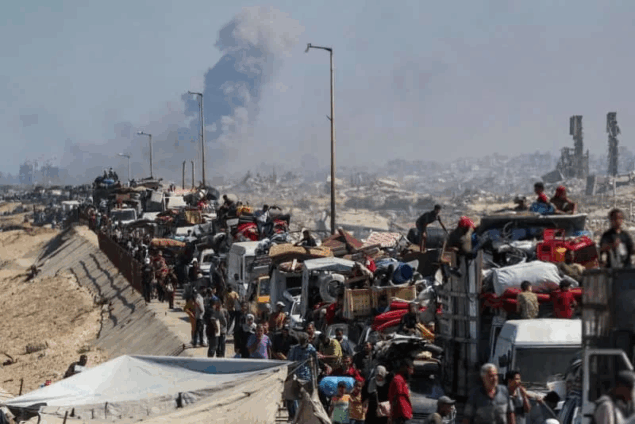Mali's Capital Under Siege: Jihadist Blockade Strangles Bamako!
Since the military overthrew Mali's democratically elected government in 2020, coup leader General Assimi Goita pledged to eradicate jihadists operating in the country's north, a struggle Mali had faced for nearly a decade. Despite these assurances, the security situation has significantly deteriorated. Multiple terrorist groups operate within Mali, with the al Qaida-linked Jama'at Nusrat al-Islam wal-Muslimin (JNIM) identified as the most lethal due to the audacity and scale of its attacks. This group rejects state authority and seeks to impose its interpretation of Islam and sharia.
Contrary to the military government's promise to enhance security, 2023 witnessed a 38% increase in violence targeting civilians, according to the Armed Conflict Location and Event Data. Human Rights Watch further reported 326 attacks by Islamist armed groups against civilians between January 1 and October 31, 2024, resulting in 478 fatalities. The insurgency has evolved, spreading from northern and central Mali to the southern regions. In a significant escalation, JNIM attacked Bamako's international airport and a military barracks in the capital city in September 2024.
The insurgency entered a new and particularly dangerous phase with JNIM's blockade of southern Mali, which commenced in September 2025. This strategic move has severed vital trade routes, led to the starvation of towns, and severely tested the Malian state's control over the landlocked nation. The blockade, viewed by security scholars as a deliberate instrument of coercive governance and asymmetric warfare, aims to achieve strategic, economic, psychological, and political objectives. Its purpose is to weaken the military government, incite public discontent, and potentially consolidate JNIM's control. The blockade has already caused severe humanitarian and economic consequences, including the recent suspension of schools and universities due to fuel scarcity.
The Malian military's inability to counter these blockades stems from its structural limitations and the nature of the conflict. The army, primarily structured for conventional warfare, struggles against an irregular, asymmetric foe like JNIM, which thrives on mobility and decentralization. Insurgents utilize motorcycles and small arms, striking swiftly and retreating into difficult terrains, where state forces find it hard to respond effectively. Logistical and operational shortcomings further hamper the army; Mali faces difficulties acquiring necessary military capabilities due to international sanctions and isolation. Even military partnerships, such as with Russia's Wagner Group (now the Africa Corps), have yielded minimal results. When JNIM imposes multiple simultaneous blockades, the army's dispersed forces face an impossible task, with reinforcements vulnerable to ambushes on poorly maintained roads.
Geography and long-standing governance failures exacerbate Mali's military paralysis. The vast, semi-arid blockade zones, crisscrossed by ungoverned routes, lie largely beyond effective state presence. The terrain's natural obstacles, like narrow roads, bush paths, and seasonal rivers, impede mechanized military movements, while favoring insurgents' guerrilla tactics. Decades of neglect, corruption, and abusive counterinsurgency practices have alienated local populations, eroding crucial intelligence networks. JNIM, unlike movements with a single command structure, operates as a highly decentralized network of semi-autonomous cells, allowing it to adapt quickly, exploit state weaknesses, and expand influence by drawing upon local grievances for recruitment and sustenance. This adaptability is JNIM's greatest strength and the Malian state's enduring vulnerability.
A paradox emerges from Mali's increased militarization: despite amplified military spending, new alliances, and aggressive rhetoric, JNIM's territorial reach and tactical sophistication have deepened, making citizens feel less secure. This reflects a broader Sahelian trend where counterinsurgency efforts are predominantly military-focused, failing to address underlying socioeconomic and governance conditions such as corruption, inequality, and local marginalization that fuel insurgencies. Consequently, military campaigns often become exercises in containment rather than resolution. In this context, JNIM's blockades and incursions function not merely as military maneuvers but as potent political statements regarding who truly controls Mali's hinterlands.
Ultimately, lifting the blockades requires more than just tactical victories; it demands a fundamental rethinking of security. The military government must engage in cooperation with neighboring countries like Senegal and Côte d'Ivoire. Crucially, reclaiming territory must be accompanied by concerted efforts to rebuild trust, restore legitimate governance, and address the deep-seated grievances of the populace. Until such comprehensive measures are implemented, JNIM's agile forces and their guerrilla tactics will likely continue to outmaneuver the Malian military junta's conventional forces and rhetoric.
You may also like...
Anfield Roars: Slot's Liverpool Revival Ignites with Fan Power!

Liverpool secured a vital 2-0 victory over Aston Villa, ending a significant winless streak and lifting spirits at Anfie...
Tottenham's Surprising Season: Is It Better Than It Seems?

Tottenham Hotspur, after a strong start, faces growing fan discontent following a home loss to Chelsea, culminating in p...
China's Media Future Unveiled: 2025 Blue Book Sparks Debate on Microdramas and Cinema's Next Wave!

New 'Blue Book' reports launched at TIFFCOM reveal the dynamic state of China's TV and film industries. While TV series ...
Tame Impala Haunts Halloween Show with Rare 'Sundown Syndrome' Performance

Tame Impala's Deadbeat Tour delivered a memorable Halloween show in Brooklyn, featuring the rare performance of "Sundown...
Drake Cheers On Hometown Blue Jays in World Series Showdown

Canadian superstar Drake took center stage at Game 6 of the 2025 World Series in Toronto, rallying the Blue Jays in thei...
Nollywood's Pay King Unmasked: Ibrahim Chatta's Staggering N5 Million Fee Revealed!

Veteran actor Mustapha Bakare Otolo has unveiled a stark pay gap within Nollywood, highlighting how top star Ibrahim Cha...
Don Jazzy's Heartbreaking Confession: The Untold Story of His Near Music Exit

Don Jazzy has revealed that the collapse of Mo’Hits Records in 2012 nearly led him to quit music and move abroad. Encour...
Coffee's Weight Loss Secret: Discover When to Sip for Maximum Burn!
:max_bytes(150000):strip_icc()/Health-GettyImages-2224191613-dc93be57bd5848c2b7e322f129966b53.jpg)
Discover how coffee can support your weight loss journey by influencing metabolism, appetite, and fat reduction. Learn t...



